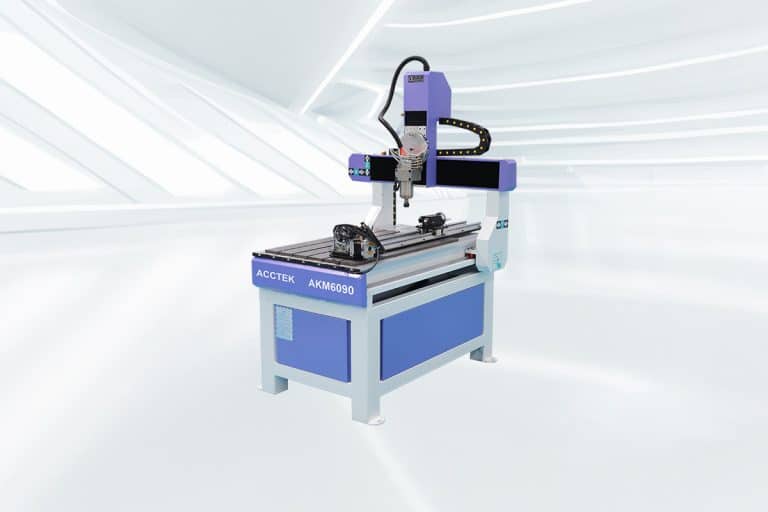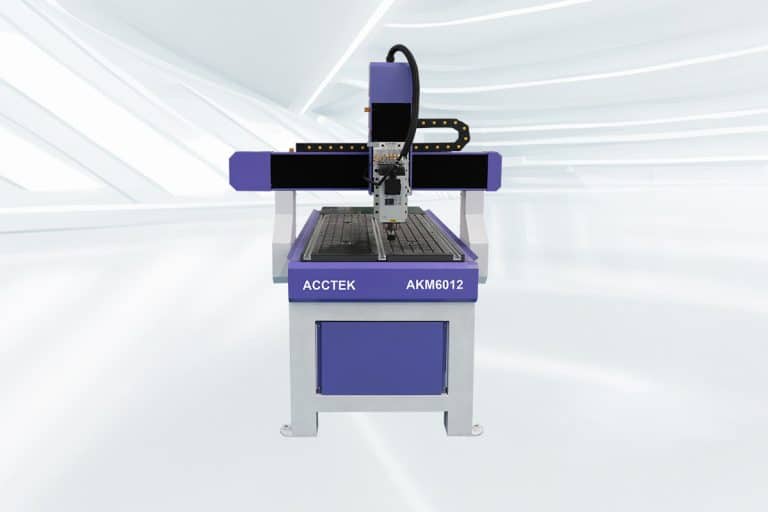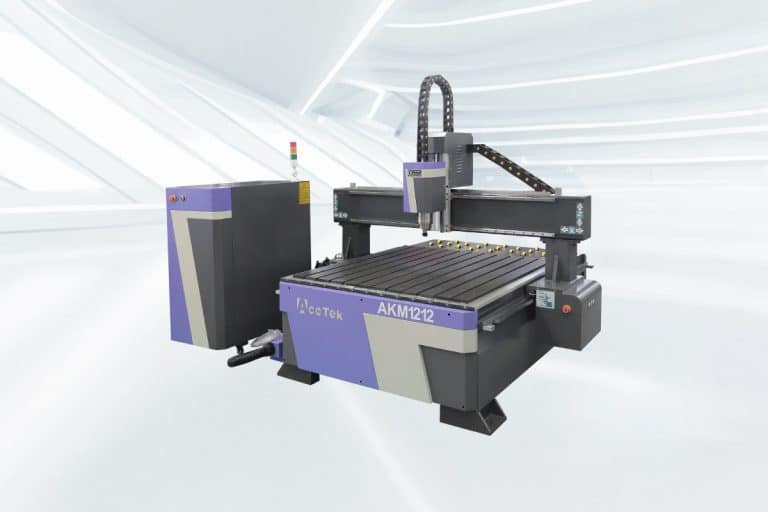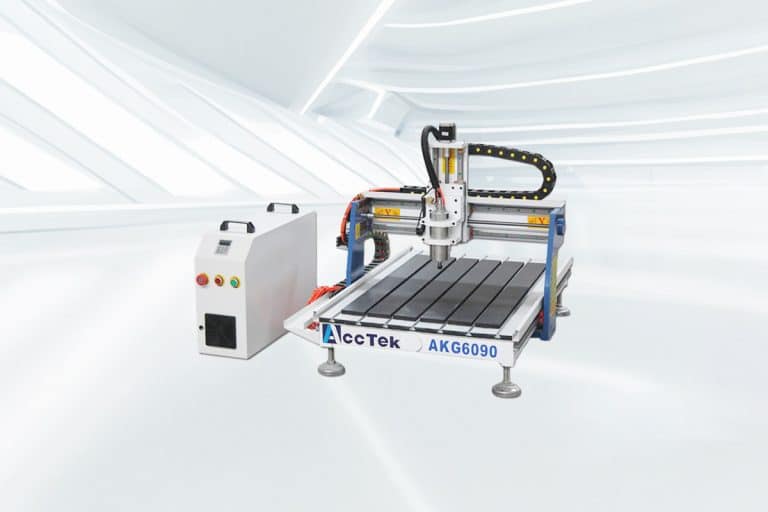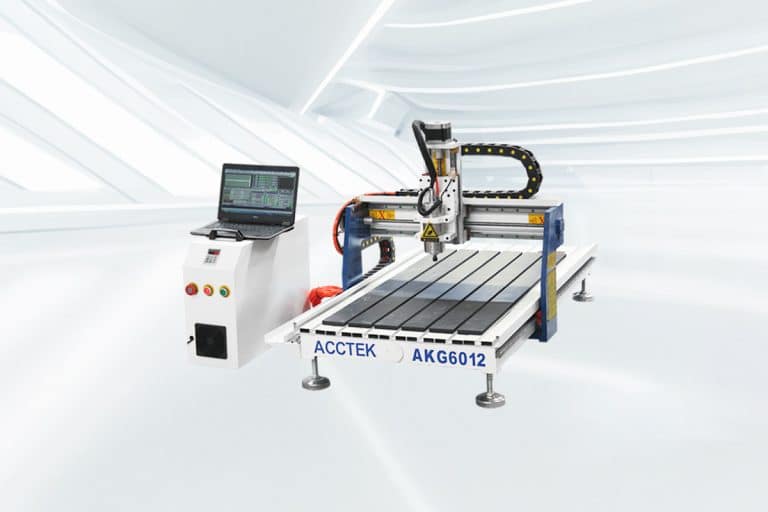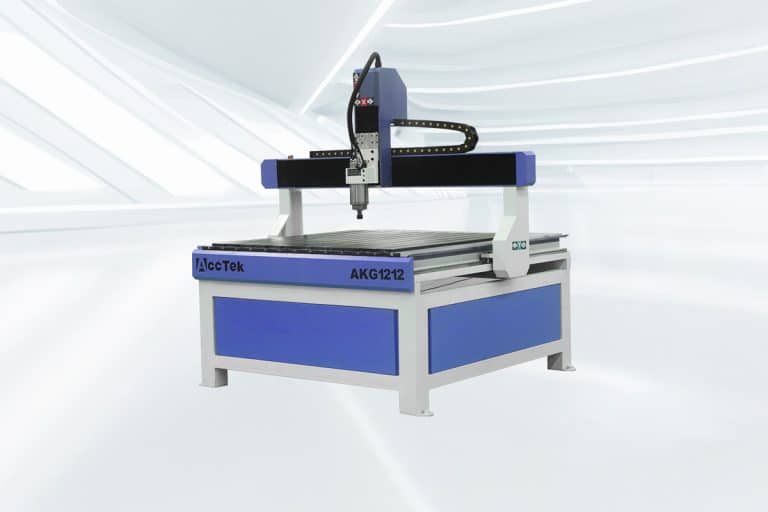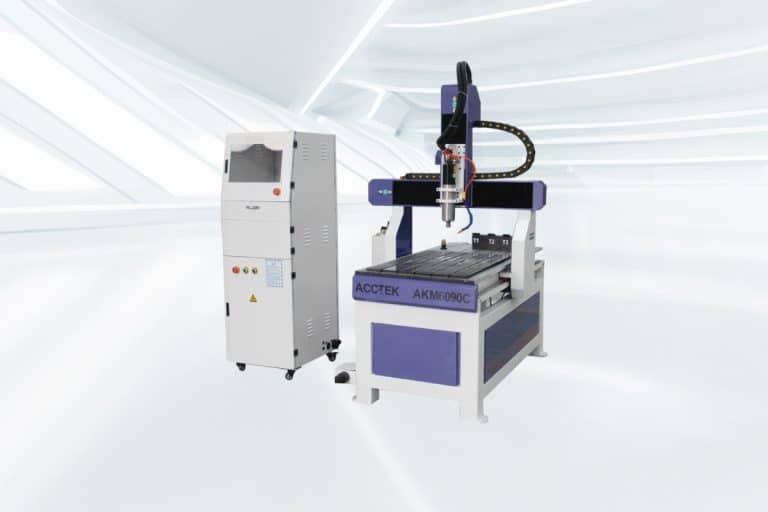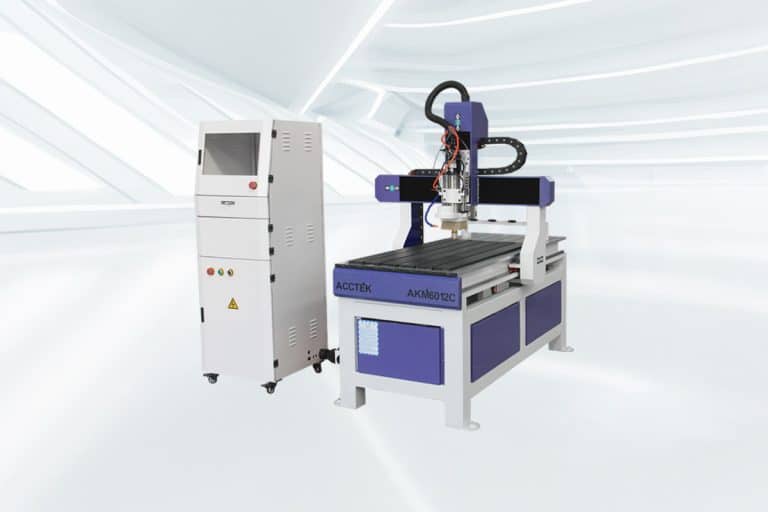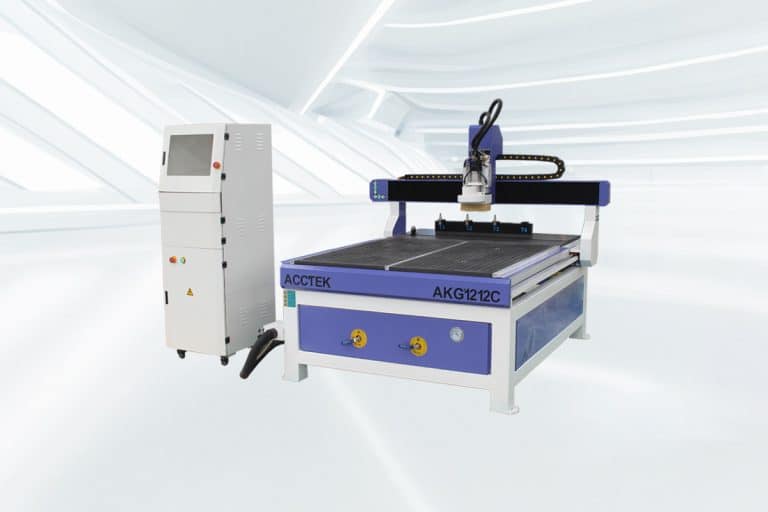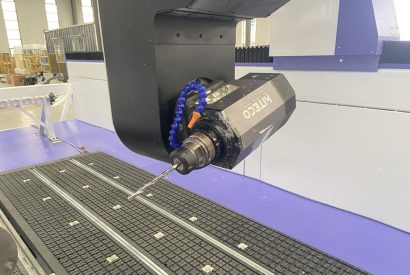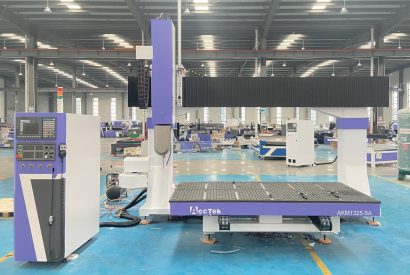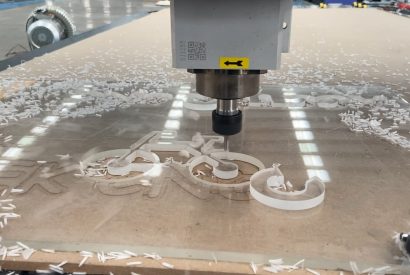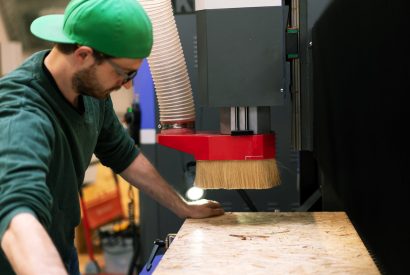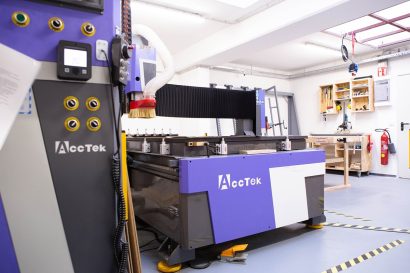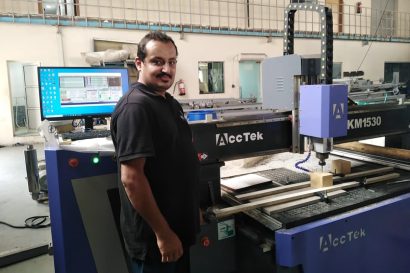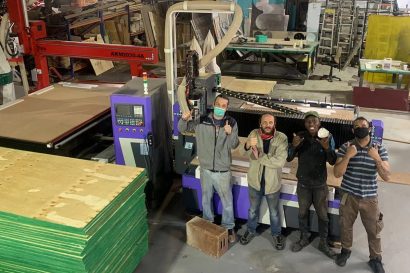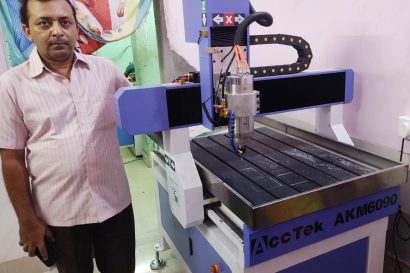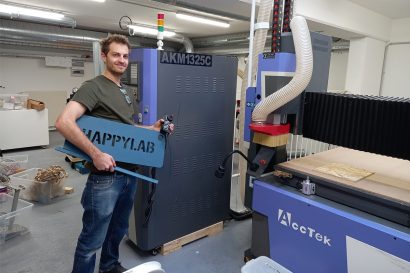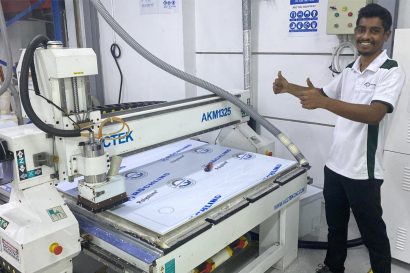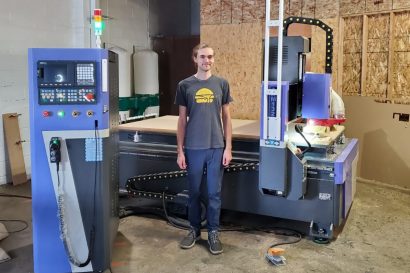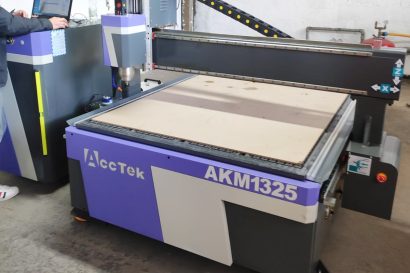Hobby CNC Router
The hobby CNC router is an essential tool for DIY enthusiasts, small business owners, and makers who want to bring their creative projects to life with precision and ease. These compact, computer-controlled machines allow you to cut, carve, and shape a variety of materials, such as wood, acrylic, and plastics, at an affordable price, making them ideal for a wide range of applications from woodworking and model making to engraving and prototyping.
Designed for both beginners and seasoned hobbyists, hobby CNC routers offer an accessible entry point into the world of computer numerical control (CNC) machining. They combine user-friendly software interfaces with powerful motors and advanced technology to produce intricate designs and flawless cuts. Whether you’re crafting personalized furniture, creating detailed signage, or working on intricate artistic projects, these CNC routers ensure superior accuracy, repeatability, and finish quality.
Our range of hobby CNC routers includes various sizes and configurations to fit different workspace sizes and project demands. From easy-to-assemble kits for those just starting, to high-performance machines for more experienced users, there’s a solution to suit every need. Dive into the world of digital fabrication with a hobby CNC router and unlock endless possibilities for your creations.
Tips For Choosing The Right Hobby CNC Router
Choosing the right hobby CNC router for your needs involves considering various factors, including project complexity, workspace size, and the materials you plan to work with. By evaluating these key aspects, you can ensure you pick the perfect CNC router for your creative endeavors.
Define Your Project Scope
Before making a purchase, assess the types of projects you’ll be creating. Are you planning on cutting wood, plastic, or rubbers? Some CNC routers specialize in certain materials, while others are more versatile. Make sure the machine you choose matches the materials you’ll frequently use, ensuring you get the best results for your projects.
Consider Machine Size and Workspace
Think about your available workspace and the size of projects you’ll be working on. Desktop models are ideal for small workshops or limited space, while larger CNC routers are better suited for bigger, more complex projects. Choose a CNC router that fits comfortably in your workspace while offering the cutting area you need.
Ease of Use and Software
If you’re a beginner, look for a CNC router with user-friendly software. Many hobby CNC routers come with easy-to-learn programs that help you design and execute projects. As you become more experienced, you can upgrade to more advanced software, but starting with something intuitive can save time and reduce frustration.
Accuracy and Precision
For intricate projects like engraving or detailed woodworking, precision is crucial. Look for a CNC router with high accuracy, which is typically measured in steps per millimeter or tolerance levels. A higher level of precision means cleaner, more professional results, especially when working on fine details or delicate designs.
Power and Motor Specifications
The power of the CNC router is essential when cutting through thicker or denser materials like hardwood or aluminum. Higher-powered motors are typically more capable of handling tougher materials. Pay attention to motor specifications to ensure the CNC router can meet the demands of your projects and deliver smooth, efficient cutting.
Cutting Speed and Depth Control
Look for a CNC router with adjustable cutting speed and depth to give you more control over your projects. Some models allow you to fine-tune these settings, helping you optimize cutting efficiency and quality based on the material and complexity of the task. Variable speed controls also help you manage different types of cuts more effectively.
Build Quality and Durability
The build quality of your CNC router directly impacts its performance and longevity. Look for machines constructed with durable materials like aluminum or steel, which can withstand the wear and tear of frequent use. A solid, stable frame minimizes vibrations, leading to smoother cuts and a longer lifespan for your CNC router.
Drive System and Motion Control
The drive system of the CNC router determines its precision and responsiveness. Common options include belt-driven systems, which are faster but less precise, and ball screw systems, which offer high accuracy. Depending on your needs, choose a CNC router with the appropriate motion control system that balances speed and precision.
Look for Expansion Options
If you plan to expand your projects in the future, consider a CNC router with upgradeable components. Some machines allow you to swap out the spindle, motors, or add-ons to enhance performance. Having the option to upgrade as your skills or project complexity grows ensures the CNC router can meet evolving needs.
Budget and Value for Money
Set a realistic budget based on your project needs. While cheaper CNC routers are available, investing in a quality machine that can handle the tasks you need may save money in the long run. Focus on getting the best value, balancing price with the features necessary to complete your projects effectively and efficiently.
Customer Reviews and Reputation
Before making a final decision, check customer reviews and product ratings to get insights into a CNC router’s reliability and performance. Reviews can provide valuable information about a machine’s durability, ease of use, and potential issues. A well-reviewed product from a reputable manufacturer is a good indicator of quality.
After-Sales Support and Warranty
Look for a hobby CNC router that comes with strong after-sales support, including technical assistance, online tutorials, and customer service. A reliable warranty is also essential, as it ensures protection in case of mechanical issues or defects. Good after-sales support will help resolve any issues quickly and keep your machine running smoothly.
What Materials Can The Hobby CNC Router Cut
Hobby CNC routers are highly versatile machines that can cut a wide range of materials, making them ideal for a variety of creative projects. Whether you’re working with softwoods, hardwoods, plastics, or acrylics, these CNC routers offer the precision needed for clean, detailed cuts. They are commonly used in woodworking, model making, signage, and prototyping. The material you choose will determine the type of CNC router bit and settings you’ll use, but with the right setup, hobby CNC routers can handle diverse materials, allowing for both intricate designs and larger-scale creations. Whether crafting decorative pieces, functional items, or prototypes, the possibilities are nearly limitless.
Application Industry

Construction Industry
The integration of CNC routers into construction workflows has ushered in a new era characterized by meticulous detailing, rapid prototyping, and improved material utilization.

Aerospace Industry
The CNC router is widely used in aerospace engineering due to its unparalleled ability to carve complex designs, manufacture complex parts, and ensure tight tolerances.

Jewelry Industry
The CNC router revolutionize the way fine jewelry is designed and made by delivering unparalleled precision and efficiency and producing intricate designs with meticulous attention to detail.

Stone Carving Industry
The integration of CNC routers into the stone carving industry is not only revolutionizing the way craftsmen carve, it is also redefining the boundaries of artistic possibilities in this ancient practice.
Blog
Guide to Selecting CNC Router Tool Geometries
This guide is designed to help CNC router users understand how different tool geometries work and how to choose the most suitable option for specific materials, applications, and machine configurations.
Read More
Advancements in CNC Router Technology: From 3-Axis to 5-Axis Systems
This article explores the advancements in CNC router technology, tracing the journey from 3-axis machines to today's cutting-edge 5-axis systems and comparing their application differences.
Read More
Avoiding Deformation and Melting During Plastic CNC Routing
In this article, we will explore the factors contributing to deformation and melting during plastic CNC routing, providing insights into the causes and offering practical solutions to mitigate these risks.
Read More
How Thick of Wood Can a CNC Router Cut?
In this article, we'll examine how different specifications and techniques influence the thickness of wood that can be cut, providing you with insights to make the most of your CNC ...
Read More
Frequently Asked Questions
How Do Hobby CNC Routers Work?
Hobby CNC routers use computer-controlled precision to cut, carve, or engrave materials with incredible accuracy. The process begins with creating a design using computer-aided design (CAD) software. This design is then converted into machine-readable instructions via computer-aided manufacturing (CAM) software. The CNC router’s motorized components, such as the spindle and axes, move according to these instructions to shape the material. The CNC router’s cutting tool (bit) follows the path specified in the design, removing material layer by layer to create the desired shape or pattern. The CNC router’s ability to automate movements allows for intricate, repeatable cuts, making it perfect for everything from small crafts to larger projects. Speed adjustments, cutting depth, and tool types enable flexibility to work with various materials, from wood to plastics and metals.
What Can Hobby CNC Routers Do?
Hobby CNC routers are incredibly versatile tools capable of performing a wide range of tasks. They can cut, carve, and engrave various materials like wood, plastic, acrylic, and soft metals with high precision. These CNC routers are ideal for creating detailed designs, whether you’re crafting personalized furniture, signage, or intricate artwork. Hobby CNC routers can also be used for model making, prototyping, and creating custom parts. They allow you to produce consistent, repeatable results, making them perfect for both small-scale projects and larger designs. With the right bits and settings, these CNC routers can handle everything from engraving fine details to creating deep carvings, 3D models, and complex shapes. Their flexibility makes them a valuable tool for DIY enthusiasts, artists, crafters, and small businesses looking to elevate their creations.
What Is The Cost of Hobby CNC Routers?
The cost of a hobby CNC router varies depending on the features and capabilities you need. A 3-axis hobby CNC router, which is perfect for most DIY projects and small businesses, typically ranges from $3,000 to $4,000. This model offers a great balance between performance and affordability for users who need precision cutting and engraving for a variety of materials.
On the other hand, a hobby ATC (Automatic Tool Changer) CNC router, designed for more advanced projects and increased efficiency, typically costs between $7,000 and $8,000. This model is ideal for those who require faster tool changes and the ability to work on larger or more complex projects without manual intervention. While the price is higher, it provides increased productivity and versatility for serious hobbyists or small business owners.
How Precise Are Hobby CNC Routers?
Hobby CNC routers are known for their impressive precision, making them suitable for a variety of intricate tasks. The accuracy of these CNC routers typically ranges from 0.1 mm to 0.01 mm, depending on the quality of the machine and its components. Factors such as the type of drive system (e.g., ball screw vs. belt-driven), the rigidity of the frame, and the precision of the motor all contribute to how fine the cuts can be. High-end models with advanced motion control systems and precise stepper motors can achieve tighter tolerances, making them ideal for detailed engraving, fine woodworking, and small-scale manufacturing. However, it’s important to note that while hobby CNC routers can deliver highly accurate results, their precision may vary with material type, machine settings, and tool wear. Proper calibration and maintenance are essential to maintaining optimal precision over time.
How to Safely Operate Hobby CNC Routers?
Operating a hobby CNC router requires caution and adherence to safety guidelines to ensure both your safety and the longevity of the machine. Here are some key safety tips:
- Wear Protective Gear: Always wear appropriate personal protective equipment (PPE), such as safety goggles, hearing protection, and dust masks. CNC routers generate debris and noise that can be hazardous to your eyes, ears, and lungs.
- Secure the Workpiece: Before starting the machine, make sure your workpiece is properly secured on the bed. A loose or shifting piece can cause inaccurate cuts or pose a safety risk during operation.
- Keep the Area Clean: A clean workspace minimizes the risk of accidents and ensures the CNC router functions optimally. Regularly remove dust and debris from both the work area and the CNC router itself to prevent build-up and overheating.
- Never Leave the Machine Unattended: While hobby CNC routers are automated, it’s crucial to monitor the operation, especially during the first few minutes. If something goes wrong, you need to act quickly to stop the machine and prevent damage.
- Understand the Software: Familiarize yourself with the CNC software and settings before running the CNC router. This ensures you’re setting the correct parameters for cutting depth, speed, and material type, minimizing the risk of errors.
- Inspect the Machine Before Use: Before each operation, check the CNC router for any signs of wear, loose parts, or obstructions. Ensure the spindle and tools are in good condition and properly installed to avoid accidents.
- Use Proper Ventilation: Certain materials, such as plastics and metals, can emit fumes when cut. Ensure your workspace is well-ventilated or use a dust collection system to minimize inhalation risks.
- Turn Off the Machine After Use: Always turn off the CNC router and disconnect it from the power source when not in use. This prevents accidental starts and saves energy.
How to Maintain Hobby CNC Routers?
Proper maintenance is crucial for ensuring the longevity and optimal performance of your hobby CNC router. Regular upkeep not only helps prevent breakdowns but also maintains precision and reliability. Here are essential maintenance tips:
- Clean the Machine Regularly: Dust and debris from cutting can accumulate on the machine, leading to performance issues. Clean the CNC router’s frame, rails, and spindle after every use. Use a soft brush or air compressor to remove dust, and wipe down surfaces to prevent build-up.
- Lubricate Moving Parts: Lubricate the CNC router’s moving components, such as rails, screws, and bearings, at regular intervals. This reduces friction, prevents wear and tear, and ensures smooth operation. Use the manufacturer’s recommended lubricants for best results.
- Inspect the Spindle and Tools: Check the spindle and cutting tools before each use to ensure they are sharp and free from damage. Dull or damaged tools can cause poor cutting quality and strain the machine. Replace or sharpen tools as needed to maintain precision.
- Check for Loose Parts: Over time, vibrations during operation can cause screws, bolts, and other components to loosen. Periodically inspect and tighten all fasteners, particularly those on the gantry, spindle, and stepper motors. This ensures stability and accurate performance.
- Calibrate the Machine: Regular calibration ensures that your CNC router continues to produce precise cuts. Check the alignment of the axes, the zero point, and tool height, and recalibrate as needed, especially if you notice issues with accuracy.
- Monitor the Electrical System: Inspect the power supply, wiring, and connections to ensure everything is functioning properly. Look for any frayed wires or loose connections that could cause electrical issues. Turn off and disconnect the machine before performing any electrical checks.
- Keep the Software Up-to-Date: Ensure the machine’s software and firmware are updated regularly. Software updates can fix bugs, improve performance, and offer new features that may optimize your workflow.
- Store Properly When Not in Use: If you don’t plan to use your CNC router for an extended period, store it in a dry, dust-free environment. Cover the machine to protect it from environmental factors, and disconnect the power to avoid potential electrical issues.
What Customer Support Do Hobby CNC Routers Provide?
Hobby CNC routers come with reliable customer support options to ensure smooth operation and user satisfaction:
- Free Online Technical Support: Customers can access complimentary technical assistance through online platforms, including email, chat, or video support. This service is ideal for troubleshooting, software setup, or resolving operational issues remotely.
- Paid On-Site Training: For users requiring hands-on guidance, on-site training sessions are available at an additional cost. These sessions cover installation, operation, and maintenance to ensure optimal use of the machine.
What Is The Warranty Period of Hobby CNC Routers?
Our CNC router is backed by a comprehensive warranty designed to give you peace of mind and protect your investment:
- 3-Year Warranty for the Entire Machine: This full warranty covers any defects or malfunctions in the machine as a whole, ensuring reliable performance and longevity over time.
- 5-Year Warranty for Core Components: Key components essential for optimal machine operation are covered for 1.5 years. This includes parts that may experience wear and tear with regular use, ensuring you have support for the most vital parts of the machine.

